Episodes
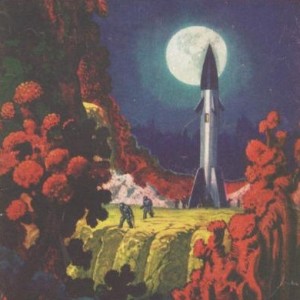
Tuesday Apr 13, 2021
Can Science Fiction Be the Epic of Our Times? with Dr. Frederick Turner
Tuesday Apr 13, 2021
Tuesday Apr 13, 2021
It makes no sense at first: a band of heroes,
Led by an old man with a bolo tie,
Who saved a world that was not worth saving.
There’s nothing for it then but to explain.
Perhaps for most of you it’s history,
But there’s a right way and a wrong way
To tell a story, and this on is epic.
Thus begins Fredrick Turner’s modern science fiction epic, Apocalypse. It’s the third sci-fi epic he has written and like Homer, Virgil, Milton, and Dante before him, he has written them in verse.
Dr. Turner is a poet, a cultural critic, a playwright, a philosopher of science, an interdisciplinary scholar, an aesthetician, an essayist and a translator, as well as the author of 28 books, including Natural Classicism: Essays on Literature and Science; Rebirth of Value: Meditations on Beauty, Ecology, Religion and Education; and Epic: Form, Content, and History.
Dr. Turner, now retired Professor of Literature and Creative Writing at the University of Texas Dallas, delivered a lecture here at Wyoming Catholic College. While he was in Lander, Dr. Turner was kind enough to join us for a podcast interview.
Dr. Turner's lecture can be found here.
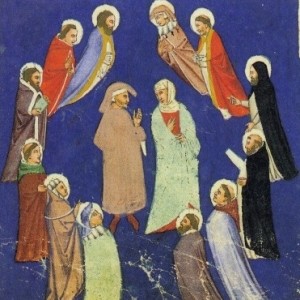
Tuesday Feb 02, 2021
Dante: "The Infinite Beauty of the World" with Dr. Jason Baxter
Tuesday Feb 02, 2021
Tuesday Feb 02, 2021
In his Divine Comedy, writes Wyoming Catholic College professor Dr. Jason Baxter, Dante “intentionally gathered creatures, places, landscapes, and practices from across the world and types of encyclopedic texts and then filled his book with their imagines; and, second, the poet consistently and insistently constructs moment in which we—along with the pilgrim—must take it all in at a glance, as if we are viewing the whole imago mundi from above.”
That quotation from Dr. Baxter comes from his new scholarly book, The Infinite Beauty of the World: Dante’s Encyclopedia and the Names of God published in time for the commemoration of Dante Alighiri’s death in 1321. And certainly anyone who has read the Commedia is well acquainted with the whirl of images and ideas contained in every Canto.
In this edition of The After-Dinner Scholar, Dr. Baxter discusses his new scholarly book as well as making Dante accessible to non-scholars.
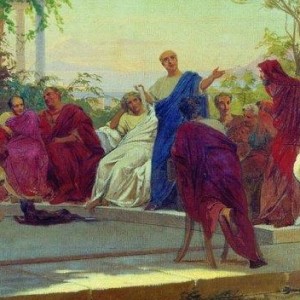
Tuesday Nov 10, 2020
Carpe Diem: The Poetry of Horace with Prof. Eugene Hamilton
Tuesday Nov 10, 2020
Tuesday Nov 10, 2020
In 1959 Oxford University Press published a 200-page book containing 451 translations (half of them in English) of a single 16-line Latin poem, Ad Pyrrham or “The Ode to Pyrrha.” The poet—now nearly forgotten—was perhaps the most influential poet of all time. His name: Quintus Horatius Flaccus, known in the English-speaking world as Horace.
For 2,000 years Horace was admired as possibly the greatest poet in history. And then Latin—especially advanced Latin—became a thing of the past and few were able to read his grammatically complex works. Today, of course, poetry itself has become passé.
But at Wyoming Catholic College, Latin is a required subject and poems are read, studied, and memorized. Latinist Eugene Hamilton has been helping a group of students work there way through a selection of Horace’s Odes.
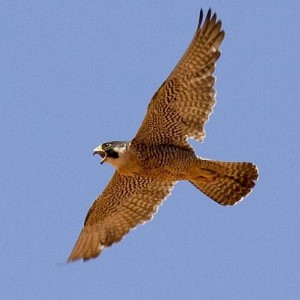
Tuesday Sep 08, 2020
Lecture: "Beauty is Truth: How Poetry Enriches Science" by Dr. Tiffany Schubert
Tuesday Sep 08, 2020
Tuesday Sep 08, 2020
The tendency of science to reduce all of the world and life in it to predictable laws of physics is not new. And poets since William Wordsworth two hundred years ago have insisted that life ought not to be reduced.
Since the theme of this year’s Wyoming School was “Beauty is Truth: Science and the Catholic Imagination,” we looked to poets to help us inform our imaginations as we look at world around us, the heavens, and our own human nature.
The poetry we read and discussed is all available online for free.
- Henry Vaughn, “Water-fall”
- Gerard Manley Hopkins, “God’s Grandeur,” “Pied Beauty,” “The Windhover”
- William Wordsworth, “The World is Too Much With Us,” “The Tables Turned”
- Robert Frost, “Never Again Would Bird’s Song Be the Same”
- Edna St. Vincent Millay, “Euclid alone has looked on Beauty bare”
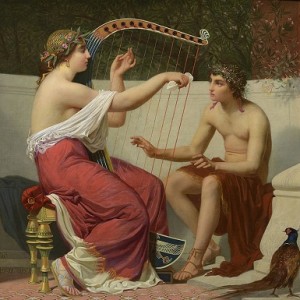
Tuesday May 05, 2020
Learning to Love Poetry with Dr. Glenn Arbery
Tuesday May 05, 2020
Tuesday May 05, 2020
In the May 1991 issue of The Atlantic, poet Dana Gioia wrote, “American poetry now belongs to a subculture. No longer part of the mainstream of artistic and intellectual life, it has become the specialized occupation of a relatively small and isolated group. Little of the frenetic activity it generates ever reaches outside that closed group. As a class poets are not without cultural status. Like priests in a town of agnostics, they still command a certain residual prestige. But as individual artists they are almost invisible.”
Not only do we Americans not know our contemporary poets, we don’t read the poets of the past either. Poems are, for many of us, opaque. We simply don’t understand nor do we take the time to learn to understand, to appreciate, to love poetry.
With that in mind, Wyoming Catholic College president, Dr. Glenn Arbery has been on a mission: the revival of poetry. And he's begun a daily vlog on which he reads and comments on one poem a day: www.wyomingcatholic.edu/blog. Dr. Arbery is our guest on this episode of The After Dinner Scholar.
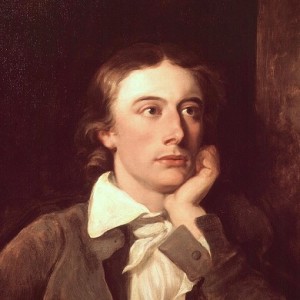
Tuesday Apr 21, 2020
Tuesday Apr 21, 2020
St. Agnes' Eve—Ah, bitter chill it was!The owl, for all his feathers, was a-cold;The hare limp'd trembling through the frozen grass,And silent was the flock in woolly fold:Numb were the Beadsman's fingers, while he toldHis rosary, and while his frosted breath,Like pious incense from a censer old,Seem'd taking flight for heaven, without a death,Past the sweet Virgin's picture, while his prayer he saith.
With those lines, the Romantic Era poet John Keats (1795-1821) began “The Eve of St. Agnes”(available here). A beadsman was someone whose duty it was to pray for his benefactor, the beads being the beads of the rosary.
While he prays in the chapel, in the adjacent castle, Keats tells us, Madeline dreams of her love for Porphyro, her family’s great enemy. Later that night Porphyro arrives at the castle and finds his way to Madeline’s bedroom. She wakes from a dream, the two declare their love for each other, and they run off together.
Dr. Glenn Arbery and Dr. Tiffany Schubert got together—online of course—to discuss the poem for the benefit of Wyoming Catholic College juniors listening at home.
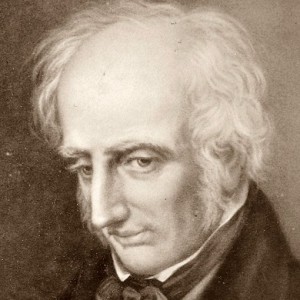
Tuesday Mar 10, 2020
Tuesday Mar 10, 2020
“Quit your books” to enjoy the sunshine is not exactly what we want from our students, but they do study this poem, “The Tables Turned” by William Wordsworth from which that line is taken.
Wordsworth (1770-1850) was one of the first of the English romantic poets and one of the major figures in the Romantic Movement. Romanticism emphasized individualism, emotions, and the glories of nature in contrast to an increasingly technological world.
Dr. Tiffany Schubert has been teaching Wordsworth this semester and is our guest on this week's After Dinner Scholar.
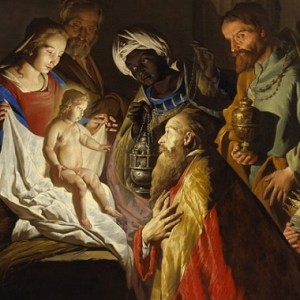
Tuesday Dec 31, 2019
The Magi in the Poetry of Yeats and Eliot with Dr. Glenn Arbery
Tuesday Dec 31, 2019
Tuesday Dec 31, 2019
‘A cold coming we had of it,
Just the worst time of the year
For a journey, and such a long journey:
The ways deep and the weather sharp,
The very dead of winter.’
Those lines are the beginning of T. S. Eliot’s poem “Journey of the Magi,” an imagined first-person reflection by one of the Magi on the long trip to Bethlehem.
St. Matthew’s Gospel makes it clear that these were the first Gentiles, the first non-Jews to worship Christ. And they, their journey, and their gifts—gold for a king, frankincense for a God, and myrrh with its aroma of death—have attracted a good deal of interest and imagination over the centuries.
As we prepare for the Feast of Epiphany, Wyoming Catholic College president Dr. Glenn Arbery discusses Eliot’s poem (written in 1927) as well as one written by William Butler Yeats some years earlier (in 1916).
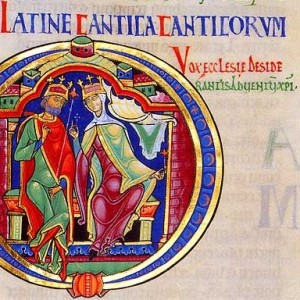
Tuesday Nov 19, 2019
Lovers in Latin: Reading Canticum Canticorum with Dr. Michael Bolin
Tuesday Nov 19, 2019
Tuesday Nov 19, 2019
“Adiuro vos, filiae Ierusalem, per capreas cervasque camporum,
ne suscitetis neque evigilare faciatis dilectam, quoadusque ipsa velit.”
The quote is from the Latin text of the Song of Songs in the Old Testament. “I adjure you, O daughters of Jerusalem, by the gazelles or the hinds of the field, that you stir not up nor awaken love until it please.” (Song 2:7)
That biblical book in Latin is the subject of one of four Latin reading groups here at Wyoming Catholic. Juniors and seniors hone the Latin skills they learned as freshmen and sophomores. The best way to retain and grow language skills is, of course, to use them.
The group working way through Canticum Canticorum ably led by Dr. Michael Bolin, our guest for this After Dinner Scholar.
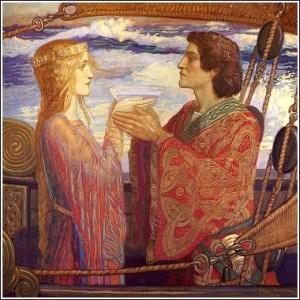
Tuesday Oct 08, 2019
Brave Knights, Lovely Ladies, and Medieval Romances with Dr. Tiffany Schubert
Tuesday Oct 08, 2019
Tuesday Oct 08, 2019
The prioress in Geoffrey Chaucer’s Canterbury Tales is something less than a humble holy woman. She lives a comfortable even luxurious lifestyle. She values her lap dogs above most people. The rosary she carries is made with precious stones and she wears a golden brooch on which is engraved “Amor Vincit Omnia,” “Love conquers all.”
The romantic notion the “Love conquers all” is hardly a relic of the past. To judge by many modern movies,TV shows, popular songs, and books, we still dream of being overcome by the power of love and swept into a happily-ever-after.
And that idea has been around for at least 1,000 years beginning with the medieval romances.
Dr. Tiffany Schubert recently led a faculty symposium about Medieval romances here at Wyoming Catholic College. Dr. Schubert is our guest this week on The After Dinner Scholar.

